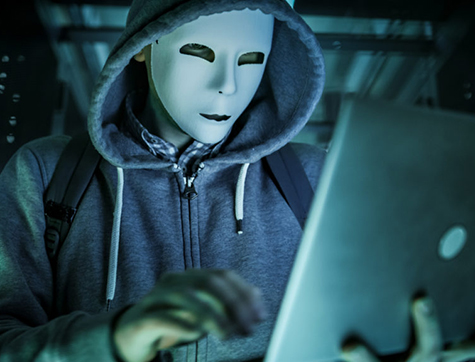I realized I’d been hacked when a cousin texted to say he’d received a message that didn’t sound like me: “Hello, I need a favor from you. I’d appreciate it if you could email me back asap. Am unavailable on the phone. Please let me know if you are online. Thank you. Elizabeth.”
And then the calls began, asking if I needed help. The message wasn’t in my “Sent” mail, but as I watched years of correspondence steadily disappeared. Someone, something was erasing the list, item by item. Frantic, I tried to change my password and was too rattled to remember how. And I had an appointment. When I returned an hour later, the list was no longer shrinking but had stopped at November 2011. And my entire contact list had disappeared.
Meanwhile the phone rang non-stop with worried calls. Apparently, if you responded to the first message, you then received another saying I had Covid and couldn’t go out to buy the gift cards I wanted to send to my nephew and would the recipient please do it for me, to the tune of $1000, for which I would later reimburse them. An obvious hack.
While I spent the day trying to get AOL to restore my lost data, first with one and then another woman in Romania and finally with one in the Philippines, the phone rang. In addition to friends, I heard from an extraordinary range of people: someone from the elevator maintenance company, my dentist’s secretary, a mattress delivery service person, my daughter’s high school friend, someone from a bank I’d queried about a mortgage. The emails, too, came from all corners of my life and from as far as Belgium, where a gallerists I’d once met at an art fair just wanted to make sure I was OK. Many left the message, “I’m here if you need me.”
I am mystified by this outpouring. Most realized that the message was likely a hack but wanted to be reassured about me in case it wasn’t. Where was the room for doubt? It was highly improbable that I would be asking any of these people to lend me money (and only that one person, since the $1000 was all I supposedly needed). And then, if they knew me, they would know I had a husband to help me; the naked ask for money is itself the mark of a scam; I could have bought the gift cards on line; a gift for a nephew is hardly an emergency. How could it not be a scam? But all these people, friends, acquaintances, and those I had never met, overrode all logic and their own good intuition to offer a hand. And, to my horror, at least three sent the money.
One person called before taking the plunge, so I had the chance to ask how he’d gotten to that point. “I thought it might be a scam,” he said, “but what if it wasn’t? What if you needed help? I would want to help you.”
It is clear that everyone who responded was driven by a powerful, urgent wish to offer assistance. Is it because we are all in a state of alarm and just hearing that someone has Covid ignites our concern? Do even people we barely know become real to us if they’re said to have the virus? We read about the man left to die of hypothermia on a NYC street because passers-by turned a blind eye and are told we are living in an uncaring, self-centered time. But perhaps something else is also going on.
Perhaps we see our world spinning out of control in every possible way and just wish there were something, anything we could do to make it stop. Perhaps an imperative to escape the crushing sense of isolation and helplessness in which we find ourselves trumps common sense. A disembodied cry emerges from the internet fog and some instinct in us bypasses reason to reach out, one person to another, to be there for someone else, to come to the rescue.

Worthy of a NYTimes opinion piece!